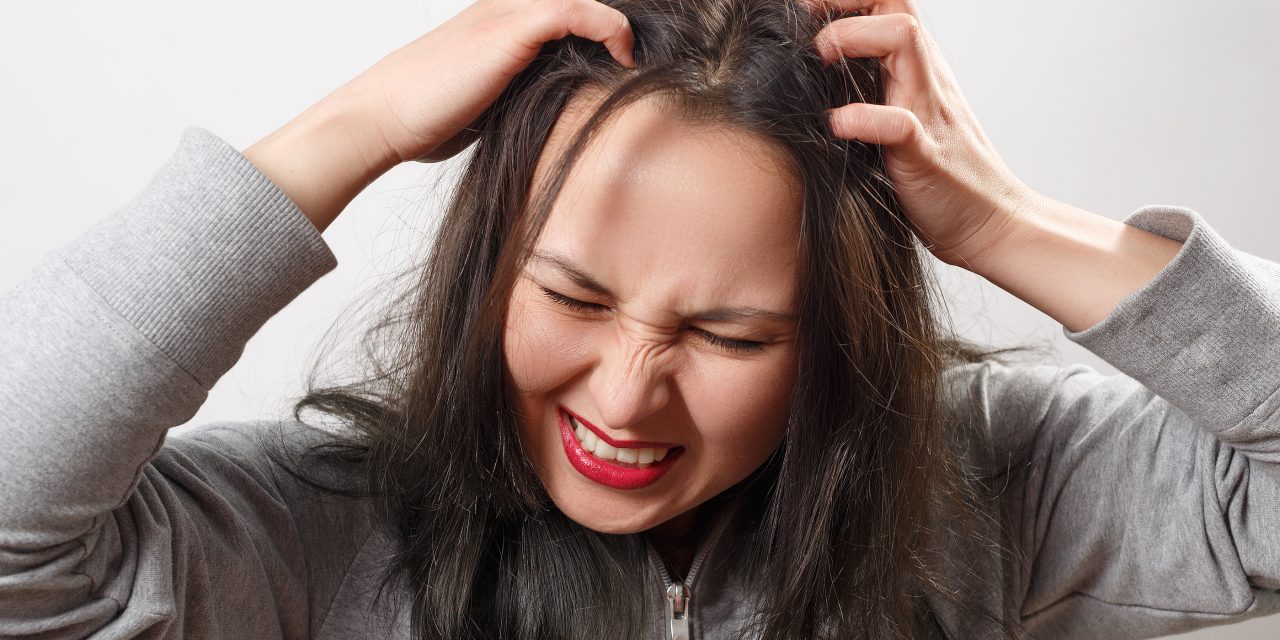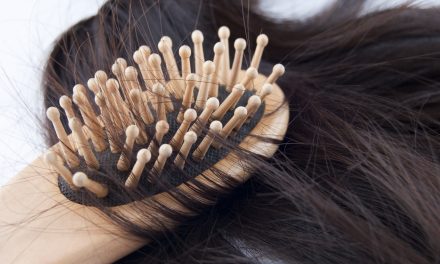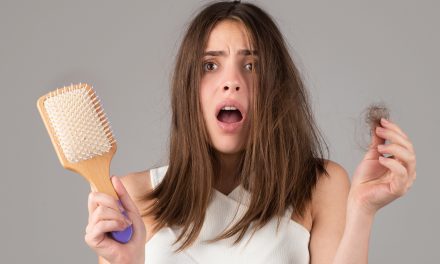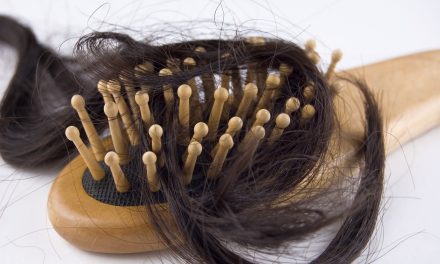Hair loss and an itchy scalp often go hand in hand, leaving many wondering if one causes the other.
Yes, hair loss can lead to an itchy scalp, particularly if inflammation or certain skin conditions are involved.
Understanding this connection is important for addressing these uncomfortable symptoms effectively.
Various scalp conditions can contribute to both hair loss and itchiness.
For example, dandruff and seborrheic dermatitis may cause irritation and hair thinning.
Identifying the specific reason for your symptoms is crucial and may require a closer look by healthcare professionals.
Addressing the problem involves a mix of treatments and lifestyle changes.
Regularly using the right hair care products and consulting a dermatologist can help manage these symptoms.
Knowing when to seek medical advice ensures the best approach to maintaining a healthy scalp.
Key Takeaways
- Hair loss can contribute to an itchy scalp.
- Scalp conditions like dandruff may cause both symptoms.
- Treatment involves products and possible professional advice.
Understanding Hair Loss
Hair loss, or alopecia, affects many people worldwide. The causes can vary widely, and understanding the different types and risk factors is key to managing the condition effectively.
Both genetic and lifestyle factors can contribute to hair loss, making it important to explore these aspects.
Types of Hair Loss
There are several types of hair loss, each with unique characteristics.
Androgenetic alopecia is the most common form, affecting both men and women. In men, it is known as male-pattern baldness, while in women, it is referred to as female-pattern hair loss.
Alopecia areata involves sudden hair loss in patches. This condition is often linked to autoimmune factors.
Telogen effluvium occurs when stress or shock forces hair roots prematurely into a resting state, leading to shedding.
Anagen effluvium is usually a side effect of medications, particularly chemotherapy drugs, which attack the rapidly growing cells in hair follicles. Other types include traction alopecia, caused by tight hairstyles, and trichotillomania, a compulsive urge to pull out one’s hair.
Common Causes and Risk Factors
Several factors contribute to hair loss.
Genetics plays a significant role in conditions like androgenetic alopecia.
Hormonal changes, such as those experienced during pregnancy, menopause, or thyroid problems, can trigger hair thinning.
Certain medications, including those for cancer, arthritis, and mental health conditions, may lead to hair loss.
Additionally, health conditions such as diabetes and lupus are known to affect hair growth.
Stress, both physical and emotional, can disrupt normal hair growth cycles.
Aging naturally leads to gradual thinning.
Autoimmune conditions like alopecia areata involve the body attacking its hair follicles, resulting in loss.
Understanding these types and causes helps in identifying the right treatment or management plan for those experiencing hair loss.
Can Hair Loss Cause Itchy Scalp?
An itchy scalp can sometimes be linked to hair loss. This itchiness might be due to specific conditions or indirect causes. Understanding the relationship between these issues can help address symptoms effectively.
Direct and Indirect Causes of Scalp Itchiness
Hair loss and itchy scalp can be directly connected when certain conditions are present.
For example, seborrheic dermatitis, a common cause of dandruff, can lead to both hair thinning and itchiness due to inflammation.
Fungal infections like tinea capitis also cause patches of hair loss and create an itchy sensation on the scalp. Another condition, lichen planopilaris, not only triggers hair loss but can also make the scalp itchy due to inflammation around hair follicles.
Indirectly, conditions like contact dermatitis or atopic dermatitis can cause an itchy scalp without necessarily leading to hair loss. However, consistent scratching from these conditions could damage hair follicles and lead to some degree of hair shedding.
The immune system’s response to scalp infections might drive both itchiness and hair loss, indicating a possible link between an itchy scalp and related hair concerns.
Addressing these scalp disorders through proper diagnosis and treatment is essential to alleviate both itch and prevent further hair loss.
Dermatological Conditions of the Scalp
Certain skin diseases and infections can affect the scalp, leading to hair loss and itchiness. Inflammatory conditions like psoriasis and eczema cause distinct symptoms, while infections can involve fungi or bacteria, including tinea capitis.
Inflammatory Skin Diseases
Inflammatory conditions can cause redness, irritation, and flakiness on the scalp.
Psoriasis, especially scalp psoriasis, is known for its silvery scales and itchy patches. Another common condition is seborrheic dermatitis, which results in greasy, yellowish scales and is often mistaken for dandruff.
Contact dermatitis, occurring due to allergens or irritants, results in red, itchy patches. Similarly, atopic dermatitis, a type of eczema, causes chronic inflammation and itchiness.
Lichen planopilaris is less common but significant among these conditions, leading to permanent hair loss due to chronic inflammation.
Infections and Infestations
Infectious causes of scalp issues often involve fungi or bacteria.
Tinea capitis, or scalp ringworm, causes itchy, scaly patches and is highly contagious. Diagnosing and treating this condition involves antifungal medications.
Folliculitis, an infection of the hair follicles, can create inflamed bumps and result from bacterial or fungal causes.
Conditions like central centrifugal cicatricial alopecia and frontal fibrosing alopecia are typically inflammatory but have infectious complications. Proper diagnosis is essential for preventing permanent damage. Understanding the symptoms and causes helps in addressing these scalp issues effectively and maintaining scalp health.
Diagnosis and When to See a Dermatologist
Experiencing hair loss and an itchy scalp might require more than just home treatments. Consulting with a healthcare professional, especially a dermatologist, helps identify underlying issues and provides effective treatment options based on the diagnosed condition.
Professional Assessment of Scalp Conditions
A dermatologist conducts a thorough examination to determine causes like medical conditions or diseases affecting the scalp. They look at symptoms such as soreness, burning, or noticeable patches, which might indicate a condition like alopecia areata.
Tests may be suggested to check for autoimmune conditions that could influence hair loss.
If these symptoms persist, it’s crucial to see a dermatologist. They have expertise in diagnosing conditions that affect the scalp and hair, ensuring appropriate and timely interventions.
For instance, they may use tools like trichoscopy to get a closer look at the scalp and identify specific patterns or issues.
Treatment Options for Hair Loss and Itchy Scalp
Addressing hair loss and an itchy scalp often requires a combination of medications and home remedies. Topical solutions and oral medications can directly target hair loss, while alternative treatments offer soothing relief for scalp itching.
Topical and Oral Medications
Topical treatments like Minoxidil (commonly known as Rogaine) are widely used to stimulate hair growth. It’s applied directly to the scalp and is often effective for various types of hair loss.
Oral medications such as Finasteride (Propecia) are also used. Finasteride helps in slowing down the rate of hair loss by blocking the formation of a specific hormone linked to hair thinning.
For those dealing with scalp conditions, topical steroids or corticosteroids can reduce inflammation and itching.
Antifungal medications or shampoos may also be recommended if a fungal infection is identified. Antibiotics might be necessary if there’s a bacterial component causing scalp irritation.
Alternative Treatments and Home Remedies
Essential oils like tea tree oil and coconut oil are popular for their soothing properties. Tea tree oil has antifungal effects that can help with dandruff-related itching. Coconut oil is moisturizing and can reduce dryness and flakiness on the scalp.
Salicylic acid, found in many anti-dandruff shampoos, can help exfoliate the scalp, reducing buildup and irritation. Some find relief from gentle scalp massages or using moisturizing masks that contain natural ingredients.
These treatments can soothe itching and promote a healthy scalp environment.
Lifestyle Changes and Scalp Care
An itchy scalp and hair loss can often be managed with simple lifestyle changes and proper scalp care. Maintaining a balanced diet and choosing the right hair products are key factors in preventing scalp issues. Stress reduction techniques are also important for overall scalp health.
Effective Hair and Scalp Care Practices
A balanced diet rich in vitamins and minerals plays a crucial role in maintaining scalp health. Foods high in omega-3 fatty acids, such as fish, and those rich in antioxidants, like fruits and vegetables, can nourish both hair and scalp.
Choosing the right hair products is essential for avoiding itchy skin and scalp. Using gentle, sulfate-free shampoos and conditioners can help. Products containing rosemary oil have been noted for their soothing properties on sensitive scalps.
Regular scalp massages can improve blood circulation and alleviate stress, which may contribute to hair loss. Massaging with oils that are hydrating can reduce dry skin and itchiness.
Reducing stress through activities such as yoga or meditation can also be beneficial. High-stress levels are often linked to both hair loss and irritated scalps. By managing stress, individuals may find an improvement in scalp conditions and hair health.
Conclusion
Itchy scalp and hair loss may be connected in various ways, often signaling underlying conditions that need attention. The following points break down the main ideas related to this connection and what it might mean for those experiencing these symptoms.
Summary of Key Points
An itchy scalp can sometimes accompany hair loss, suggesting different possible causes. Conditions such as seborrheic dermatitis can cause itching and may lead to hair loss if left untreated. In other cases, issues like psoriasis or fungal infections are responsible for both symptoms, often requiring specific treatments.
Recognizing these conditions early can help manage symptoms effectively. Treatments often target the cause of itchiness, which can, in turn, improve hair health. Many treatments are available, including medicated shampoos, topical treatments, and lifestyle adjustments.
Understanding the link between an itchy scalp and hair loss can lead to better management. Seeking advice from healthcare professionals may prevent further hair loss and address the root causes of these symptoms. Exploring treatment options tailored to the individual’s condition often leads to more effective results.
Frequently Asked Questions
An itchy scalp with hair loss can be frustrating and may have various causes such as allergies, medical conditions, or vitamin deficiencies. Different treatments and remedies are available, providing relief and helping to manage symptoms effectively.
What are effective home remedies for an itchy scalp with hair loss?
Home remedies like tea tree oil and apple cider vinegar may help. Tea tree oil has antifungal properties and can reduce itchiness and dandruff. Apple cider vinegar balances the scalp’s pH, potentially easing itchiness.
Which treatments are recommended for an itchy scalp accompanied by hair loss?
Treatments might include medicated shampoos containing ketoconazole or salicylic acid. Consulting a dermatologist for a tailored treatment plan can provide the most effective results.
What vitamin deficiencies are linked to itchy scalp and hair loss?
Deficiencies in vitamins like vitamin D, iron, and zinc can contribute to hair loss and scalp itchiness. Ensuring a balanced diet rich in these nutrients might help alleviate symptoms.
How can I stop my scalp from itching?
Applying soothing agents like aloe vera or coconut oil can reduce itchiness. It’s important to avoid scratching to prevent further irritation or damage to the scalp.
What shampoos are best for treating an itchy scalp and preventing hair loss?
Shampoos containing ingredients like pyrithione zinc or selenium sulfide can be effective against dandruff and itchiness. Regular use can help maintain scalp health and minimize hair loss.
Could a thyroid condition be causing my scalp to itch and my hair to thin?
Thyroid imbalances, such as hypothyroidism, may lead to thinning hair and an itchy scalp.
A thyroid screening can help diagnose any issues, allowing for proper treatment.


















